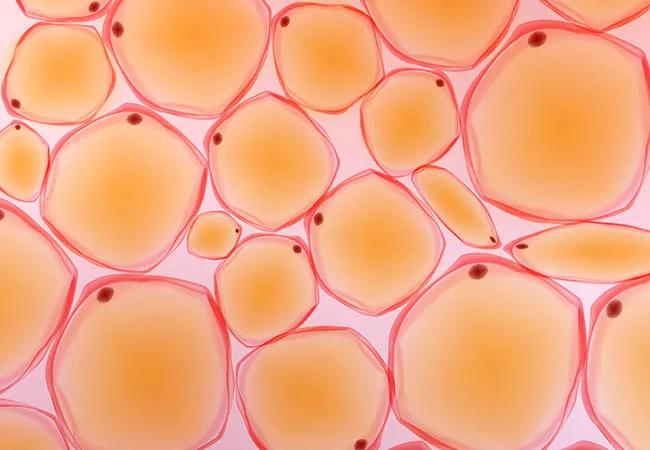Preclinical models focus interest on the protein hepsin

Researchers from the Department of Cardiovascular & Metabolic Sciences in Cleveland Clinic’s Lerner Research Institute have identified a new drug target that may help treat or prevent diabetes, dyslipidemia and obesity.
Advertisement
Cleveland Clinic is a non-profit academic medical center. Advertising on our site helps support our mission. We do not endorse non-Cleveland Clinic products or services. Policy
Findings from the study — led by Qingyu Wu, MD, PhD, and published in Proceedings of the National Academy of Sciences— show that the protein hepsin is an important regulator of metabolism and energy homeostasis, and inhibiting its expression may reduce the risk and severity of these metabolic disorders.
It’s long been recognized that hepsin is a transmembrane protein expressed primarily in liver tissue, as well as adipose tissue. To date, the physiological function and role of hepsin in disease had not been well defined.
To understand hepsin’s potential role in disease, Dr. Wu and his team studied mouse models engineered to be hepsin-deficient. Compared to hepsin-expressing mice, those with hepsin deficiency had lower glycogen and lipid levels and increased metabolic rates and adipose tissue browning (see image at top).
“Fat tissue can either be white or brown,” explains Dr. Wu. “Too much white adipose tissue can negatively affect a patient’s metabolism and risk for related disorders. Research suggests, though, that adipose tissue browning can reverse the negative effects of white adipose tissue and actually confer metabolic benefits.”
Importantly, the researchers also saw that healthy-weight hepsin-deficient mice were resistant to developing obesity, hyperglycemia and hyperlipidemia when fed a high-fight diet. Additionally, preventing hepsin expression in mice that were already obese and diabetic actually reduced the severity of those conditions over time.
The researchers also conducted protein expression analyses to understand the downstream effects of hepsin deficiency. On a mechanistic level, hepsin deficiency caused reduced expression of hepatocyte growth factor (HGF) and impaired signaling between HGF and its receptor, Met.
Advertisement
Although more research is necessary, these early results suggest that hepsin (through the hepsin/HGF-Met signaling cascade) increases glycogen and lipid production in the liver and lowers metabolic rates and adipose tissue browning. Targeting and inhibiting its activity may help treat a host of metabolic disorders.
“Given the prevalence of metabolic disorders, including obesity and diabetes, identifying a drug target to not only treat but also prevent, these conditions would have profound patient and economic benefit,” says Dr. Wu. “We believe our study offers compelling evidence that hepsin may be a viable option.”
Advertisement
Advertisement

Pheochromocytoma case underscores the value in considering atypical presentations

Advocacy group underscores need for multidisciplinary expertise

A reconcilable divorce

A review of the latest evidence about purported side effects

High-volume surgery center can make a difference

Advancements in equipment and technology drive the use of HCL therapy for pregnant women with T1D

Patients spent less time in the hospital and no tumors were missed

A new study shows that an AI-enabled bundled system of sensors and coaching reduced A1C with fewer medications